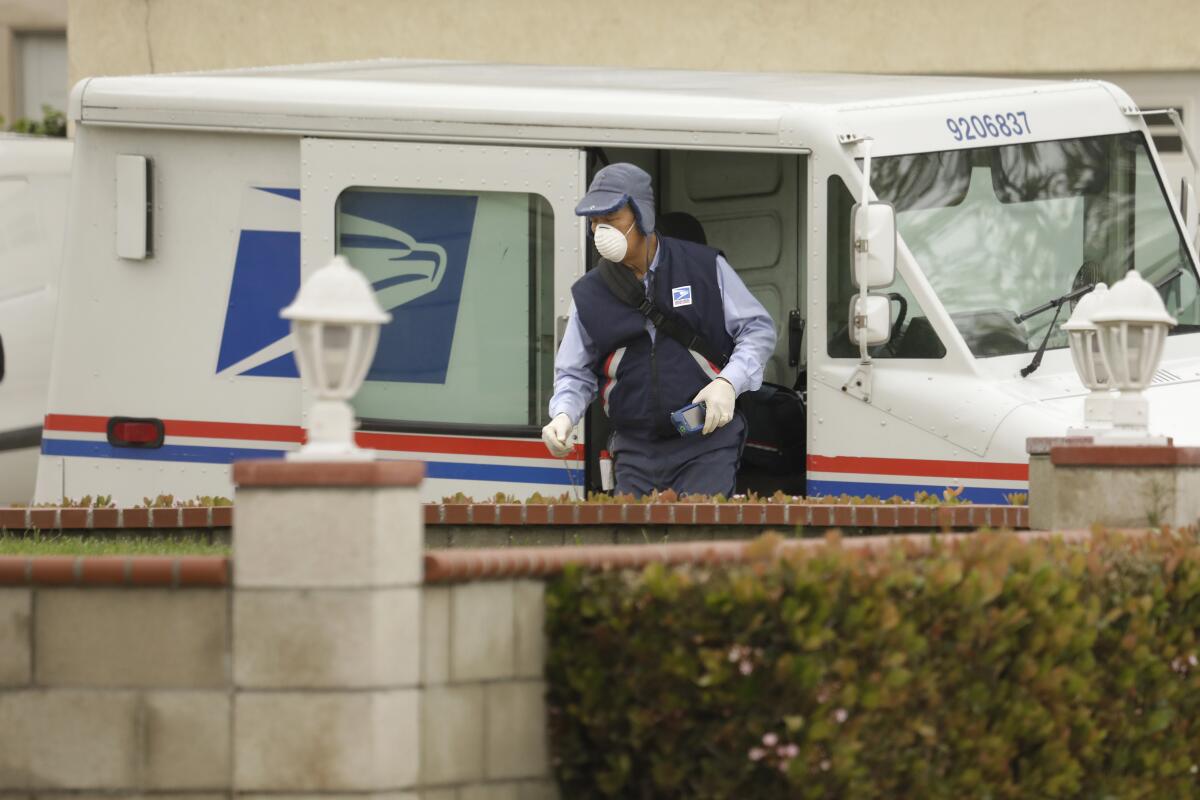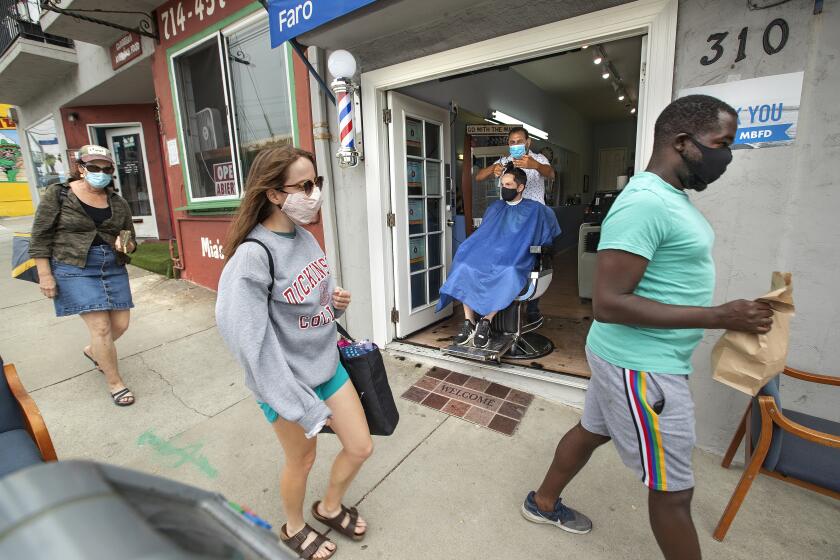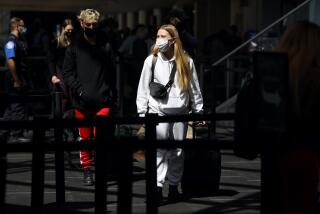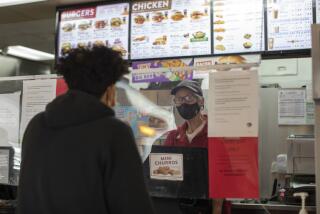How to thank healthcare, grocery and other essential workers during the coronavirus outbreak

- Share via
Lines snake through parking lots at grocery stores. Buses carry people to essential jobs. Packages wait outside doorsteps. And doctors and nurses gear up for long shifts in packed hospitals.
While many people work from home and await the end of stay-at-home guidelines, some workers continue to brave the coronavirus pandemic to go to work to keep essential parts of society running.
“At first, we looked at it like we’re here to provide to the community,” said Prince Clay, a store captain at a Trader Joe’s in Culver City. “But now people look at us — we’re not heroes — but we’re on the front line of defense.”
Here are a few ways to thank those essential workers.
Follow the rules
The easiest way to thank essential workers is by following regulations put in place to keep them safe. Stay at home unless it’s necessary to leave. Call your doctor before going to the hospital for minor symptoms. Wear masks at the grocery store, other essential businesses and on public transportation. When entering buses, do so from the rear door, and do your best to maintain proper distance from other riders and the driver.
What do you say when the person behind you in line at the grocery store is inching into your six-foot bubble? Experts share the pandemic etiquette.
For healthcare professionals and transit workers: Donate what you can
The shortage of personal protective equipment (PPE) makes going to work dangerous for many essential employees. Physicians and medical researchers mobilized quickly to organize GetUsPPE.org, a website with a comprehensive map showing locations looking for donations, instructions for drop-off/pickup and what items locations are accepting.
Before donating, always check what is needed, said Lisa Baxter, the director of major gifts at the Martin Luther King Community Health Foundation. Needs change daily.
Many hospitals have information on their websites about how and what to donate, including options for donations to a hospital’s “rainy day fund.” The monetary donations go toward urgent needs like purchasing PPE while also allowing hospitals to invest in long-term services like telehealth and triage call centers.
“Although it might not be as gratifying, it’s helpful,” said Priscilla Valencia, MLK-CHF development manager.
Arturo Aguilar, president of the Amalgamated Transit Union in Los Angeles, has also struggled to secure the necessary PPE for his members. Protective equipment such as masks and face shields, cleaning supplies and hand sanitizer are hard to find. The union president said he would accept any donations to distribute to his drivers and maintenance employees. Those with supplies can contact Aguilar via email at aaguilar@atu1277.com.
LA Metro said drivers can also accept personal donations of new, unopened masks.
For grocery store employees: Skip the reusable bags
In an effort to reduce the risk of spreading the virus, many grocery stores have stopped packing customers’ reusable bags. Customers can still transfer their groceries to their own bags outside of the store if preferred. Clay said almost all of his customers have accepted the changing rules.
For those who want to go above and beyond at their local grocery store, there are options. Clay remembered a regular customer who purchased her normal $300 grocery haul then added $100 in gift cards. She distributed $10 each to all the employees in the store.
For your letter carrier: Write a letter
Besides a courtesy note left for your mail carrier, the American Postal Workers Union suggests calling or writing your local member of Congress to support the United States Postal Service as the coronavirus outbreak has exacerbated the agency’s financial struggles.
The USPS didn’t receive any direct aid from the recent $2-trillion coronavirus stimulus bill, and the agency does not receive money from taxpayers, relying only on the sale of postage, products and services to fund its operations. However, the number of items being mailed has dropped about 50% during the coronavirus outbreak, union president Mark Dimondstein said, slashing revenue. As a result, the postal service could be out of money by Sept. 30, Postmaster Gen. Megan J. Brennan warned the House Committee on Oversight and Reform and Reform last week.
Running out of money could cost more than 600,000 jobs and end the postal service’s universal service obligation, Dimondstein said. No longer would every address in the country be accessible at the same rate.
“It won’t be equal anymore,” Dimondstein said. “It’ll be about who can afford it.”
Trying to get a handle on how California is reopening and what it means for you? Our guide includes updates and tips for remaining healthy and sane.
More to Read
Sign up for Essential California
The most important California stories and recommendations in your inbox every morning.
You may occasionally receive promotional content from the Los Angeles Times.















